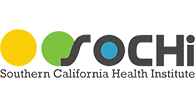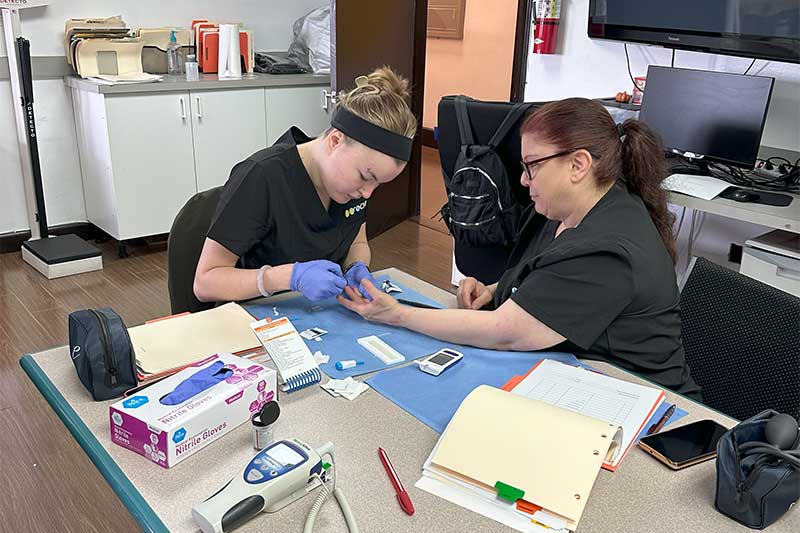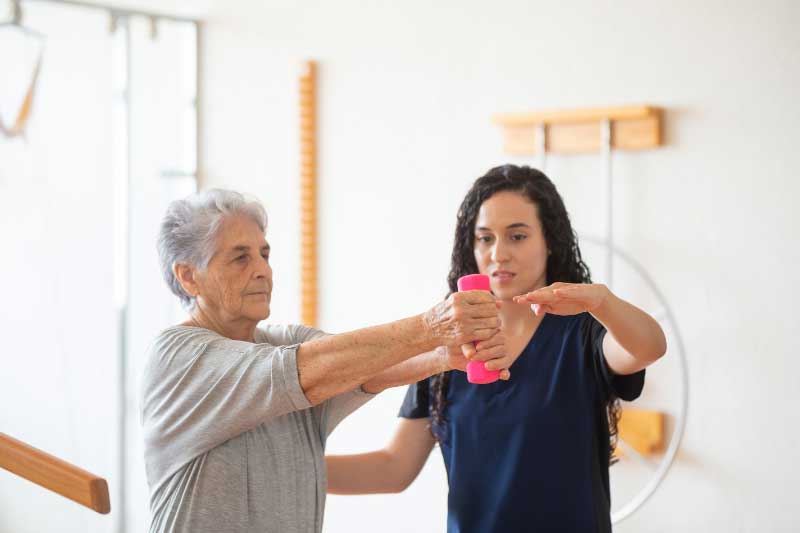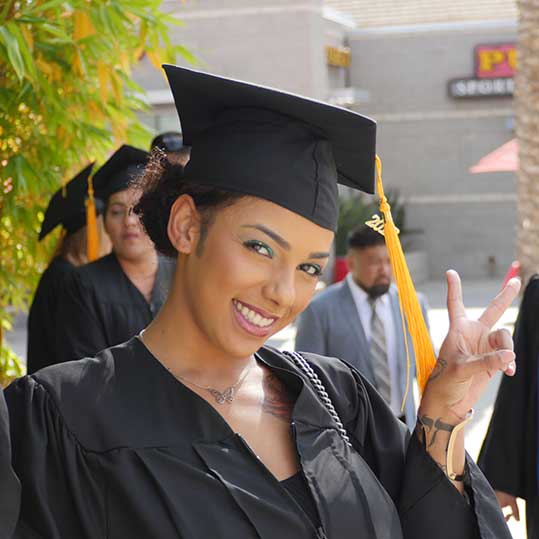Explore how technology will shape the future of medical assisting by 2030. Learn about advanced tools, AI integration, and emerging industry trends. The stethoscope around your neck might soon have company from artificial intelligence algorithms, and that patient chart you’re updating could be writing itself. Medical assisting stands at the precipice of a technological revolution that promises to reshape everything from patient interactions to administrative workflows.
Healthcare technology advances at breakneck speed, and medical assistants find themselves at the center of this transformation. Unlike other healthcare roles that might adopt technology gradually, medical assistants work across multiple touchpoints—from front desk operations to clinical procedures—making them uniquely positioned to leverage emerging innovations.
How Medical Assisting Will Transform by 2030
This comprehensive look at the future of medical assisting explores how cutting-edge technologies will redefine the profession, create new opportunities, and enhance patient care. Whether you’re a seasoned medical assistant or considering entering the field, understanding these trends will help you prepare for tomorrow’s healthcare landscape.
The changes ahead aren’t just about new gadgets or software updates. They represent fundamental shifts in how medical assistants deliver care, interact with patients, and contribute to healthcare teams. Let’s examine the technologies and trends that will shape the next decade of the medical assisting field.
Artificial Intelligence Reshapes Daily Tasks
Artificial intelligence is moving beyond theoretical applications into practical, everyday tools that medical assistants use regularly. AI-powered scheduling systems now predict no-show probabilities, automatically adjusting appointment books to maximize efficiency. These systems analyze historical data, weather patterns, and even local events to optimize scheduling decisions.
Voice recognition technology has evolved to understand medical terminology with remarkable accuracy. Medical assistants can now dictate patient notes, medication lists, and procedure documentation while maintaining direct eye contact with patients. This technology reduces administrative burden and improves the quality of patient interactions.
Predictive analytics enables medical assistants to identify patients who may require additional support or follow-up care. By analyzing patterns in vital signs, medication adherence, and appointment history, AI systems flag potential issues before they become serious health problems. Medical assistants can then proactively reach out to patients, coordinating care and preventing complications.
Machine learning algorithms also streamline insurance verification and prior authorization processes. Instead of spending hours on hold with insurance companies, medical assistants work with AI systems that automatically gather information, submit requests, and track approval status. This automation allows more time for direct patient care activities.
Telemedicine Expands Professional Horizons
Remote healthcare delivery has significantly transformed the role of medical assistants in patient care. Virtual consultations require new skills in technology management, patient coordination, and remote monitoring support. Medical assistants now facilitate telehealth appointments, troubleshoot technical issues, and ensure patients have the necessary equipment for remote consultations.
Remote patient monitoring programs rely heavily on the expertise of medical assistants. These professionals help patients set up monitoring devices, interpret readings, and coordinate care team responses when concerning trends emerge. Blood pressure cuffs, glucose monitors, and pulse oximeters connected to healthcare networks generate continuous data streams that medical assistants help manage and interpret.
Telephonic care coordination has become a specialized skill set within the field of medical assisting. Professionals in this role conduct wellness checks, medication reconciliation calls, and post-procedure follow-ups entirely through phone and video interactions. This expansion of telemedicine creates new career paths and specialization opportunities for medical assistants.
Mobile health applications increasingly require human oversight and support. Medical assistants assist patients in navigating health apps, interpreting data from wearable devices, and integrating digital health information into electronic health records. This bridge between technology and human care becomes increasingly valuable as digital health tools proliferate.
Electronic Health Records Evolve Beyond Documentation
Modern electronic health record systems incorporate advanced features that transform how medical assistants manage patient information. Smart templates adapt based on patient history, appointment type, and provider preferences, reducing documentation time while improving accuracy. These systems learn from user behavior and suggest relevant information during patient encounters.
Interoperability between different healthcare systems allows medical assistants to access comprehensive patient records regardless of where care was previously received. This seamless information sharing improves care coordination and reduces duplicate testing or procedures. Medical assistants play a crucial role in managing these integrated records and ensuring the accuracy of information across platforms.
Real-time clinical decision support tools embedded in EHR systems alert medical assistants to potential drug interactions, allergy conflicts, and protocol deviations, enabling them to make informed decisions. These safety features enhance patient care quality and help prevent medical errors. Medical assistants become active participants in clinical safety rather than passive record keepers.
Advanced analytics within EHR systems help medical assistants identify care gaps and quality improvement opportunities. The system might flag patients due for preventive screenings, medication reviews, or chronic disease monitoring. This proactive approach to population health management becomes a key responsibility for medical assistants.
Wearable Technology Creates New Monitoring Opportunities
Consumer wearable devices generate vast amounts of health data that medical assistants help integrate into clinical care. Smartwatches track heart rhythms, sleep patterns, and activity levels, providing insights that supplement traditional clinical assessments. Medical assistants learn to interpret this data and identify trends that might indicate health changes.
Medical-grade wearable devices offer more sophisticated monitoring capabilities for patients with chronic conditions. Continuous glucose monitors, cardiac event recorders, and medication adherence sensors provide real-time health information that medical assistants help manage and interpret. These devices require patient education, troubleshooting support, and data interpretation skills.
Remote monitoring programs built around wearable technology rely on the expertise of medical assistants for success. These professionals assist patients in understanding device capabilities, troubleshoot technical issues, and respond to alerts or concerning readings. The human element remains essential even as monitoring becomes increasingly automated.
Data integration from multiple wearable devices creates comprehensive health pictures that medical assistants help interpret and act upon. Correlating sleep data with blood pressure readings, activity levels with glucose control, or stress measurements with symptom reports requires analytical skills that medical assistants develop as technology advances.
Automation Transforms Administrative Functions
Robotic process automation streamlines many routine administrative tasks that traditionally consume significant portions of a medical assistant’s time. Insurance verification, appointment reminders, prescription refill requests, and lab result notifications now occur automatically, freeing medical assistants to focus on more complex, patient-centered activities.
Smart inventory management systems track medical supplies, automatically reorder items when stock levels are low, and predict usage patterns based on appointment schedules and seasonal trends. Medical assistants oversee these systems, rather than manually counting supplies and placing orders, which allows for more time to focus on clinical support activities.
Automated billing and coding assistance help medical assistants ensure accurate charge capture and proper documentation. These systems suggest appropriate procedure codes based on documented activities and flag potential billing compliance issues before claims submission. This technology reduces billing errors and improves revenue cycle management.
Patient communication automation handles routine interactions while escalating complex issues to medical assistants for personal attention. Automated systems manage appointment confirmations, pre-visit instructions, and post-visit follow-up communications, allowing medical assistants to focus on patients who need individualized support.
Specialized Technology Skills Become Essential
Medical assistants are increasingly required to possess technical competencies that weren’t part of traditional training programs. Understanding network connectivity, troubleshooting basic hardware issues, and navigating multiple software platforms become daily requirements. These skills complement clinical knowledge, making medical assistants more valuable team members.
Data analytics capabilities help medical assistants identify trends, generate reports, and contribute to quality improvement initiatives. Understanding how to extract meaningful information from electronic systems and present findings to healthcare teams becomes a valuable specialization within medical assisting.
Cybersecurity awareness training becomes mandatory as medical assistants handle sensitive patient information across multiple digital platforms. Understanding privacy regulations, recognizing security threats, and following proper data protection protocols protects both patients and healthcare organizations from cyber risks.
Training in emerging technologies, such as virtual reality for patient education, blockchain for secure information sharing, and Internet of Things devices for environmental monitoring, prepares medical assistants for continued technological evolution in healthcare settings.
Patient Engagement Technology Enhances Care Relationships
Patient portal systems require the support of medical assistants to maximize their effectiveness. These professionals assist patients in navigating online platforms, interpreting test results, and communicating effectively with healthcare teams through digital channels. The human element remains crucial even as patient engagement becomes increasingly digital.
Mobile health applications require ongoing support and interpretation, which medical assistants provide. Helping patients understand app functionality, interpret health data, and integrate digital tools into their care routines becomes a key responsibility for medical assistants working with tech-savvy patient populations.
Social media and online reputation management are increasingly involving medical assistants. These professionals help practices maintain positive online presence, respond appropriately to patient feedback, and ensure HIPAA compliance in digital communications.
Virtual reality and augmented reality tools for patient education require the facilitation of medical assistants. Whether helping patients visualize surgical procedures, understand anatomy, or practice rehabilitation exercises, medical assistants become guides in immersive educational experiences.
Preparing for Tomorrow's Medical Assisting Career
The rapid pace of technological change in healthcare means that continuous learning becomes essential for success in medical assisting. Professional development opportunities are increasingly focusing on technology integration, data management, and digital communication skills, alongside traditional clinical competencies.
Certification programs evolve to include technology-focused curricula that prepare medical assistants for emerging roles. Understanding artificial intelligence applications, telehealth best practices, and advanced EHR functionality becomes standard rather than specialized knowledge.
Career advancement opportunities expand as medical assistants develop expertise in specific technologies or patient populations. Specializations in remote monitoring, health informatics, or digital patient engagement create new professional pathways within medical assisting.
Networking with healthcare technology vendors, attending industry conferences, and participating in pilot programs for new technologies helps medical assistants stay current with rapid changes and position themselves for career growth in evolving healthcare environments.
Embracing the Digital Transformation
The future of medical assisting isn’t about technology replacing human care—it’s about technology amplifying the impact medical assistants can have on patient outcomes. These technological advances free medical assistants from routine tasks, allowing more time for patient interaction, care coordination, and clinical support activities that require human judgment and empathy.
Success in tomorrow’s healthcare environment requires embracing change while maintaining the core values that make medical assisting meaningful: patient advocacy, attention to detail, and commitment to quality care. Technology becomes a tool that enhances these fundamental qualities rather than replacing them.
Medical assistants who proactively develop technology skills, stay curious about emerging innovations, and maintain focus on patient-centered care will find tremendous opportunities in the evolving healthcare landscape. The profession stands poised for growth, increased responsibility, and greater impact on patient outcomes than ever before.
Start preparing now by exploring new technologies in your current role, seeking additional training opportunities, and connecting with colleagues who share enthusiasm for innovation in healthcare. The future of medical assisting is bright, and it begins with the choices you make today.




